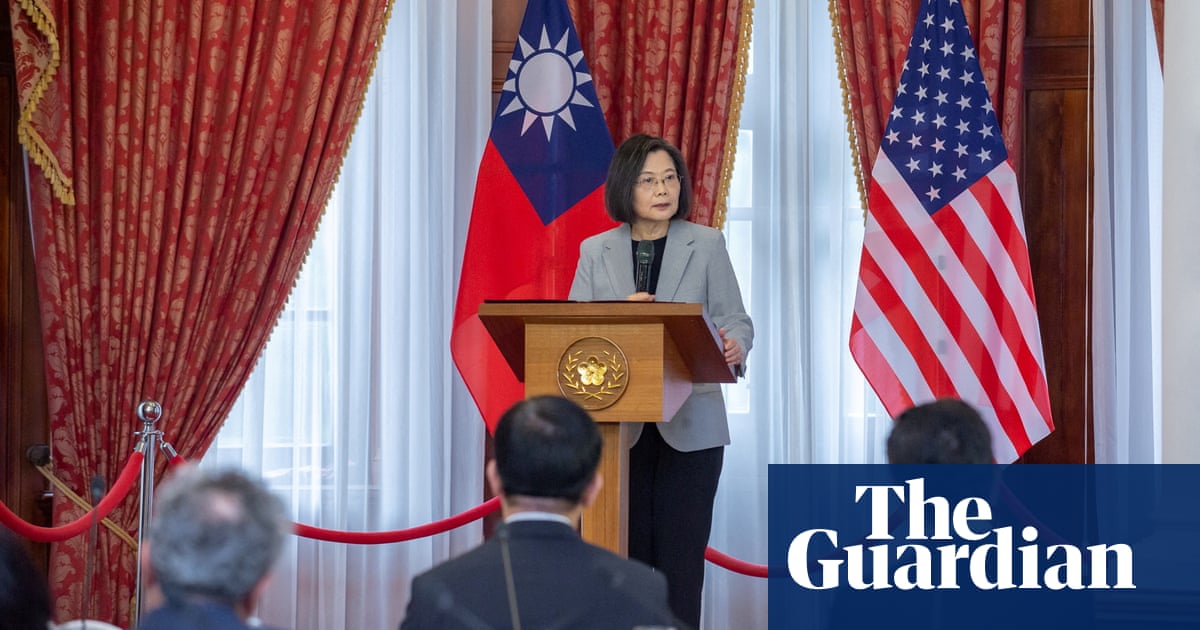World
What does Taiwan get from the foreign aid bill and why is the US economy among the biggest winners?

Taiwan’s president Tsai Ing-wen has praised the US Congress for passing a sweeping foreign aid package this week which included arms support for the island, and has drawn the ire of China.
After months of delays and contentious debate, the bill was signed into law by Joe Biden on Wednesday. Described as $95bn in aid for Ukraine, Israel and Taiwan, the legislation actually contains provisions that broadly affect many parts of the Asia-Pacific, while also spending billions of dollars at home in America.
House Republicans billed the $8.1bn for the Indo-Pacific as an effort to “counter communist China and ensure a strong deterrence in the region,” however the largest provision of funding is for projects in the US itself.
In the face of delayed shipbuilding projects, $3.3bn of the bill will go towards the US domestic submarine-building industry.
$1.9bn is designated for a Columbia-class submarine – America’s newest class of nuclear-powered submarine – the first of which is due to be delivered in 2027. Another $200m is designated for a Virginia-class submarine.
The vast majority of this money will be spent in the United States, with more than 16,000 suppliers across all 50 states set to benefit, according to Connor Fiddler at the Foreign Policy Research Institute.
“Nearly half of the Indo-Pacific appropriations directly reinforce the submarine industrial base,” Fiddler wrote in his analysis of the package. “While this investment will enhance deterrence in the Indo-Pacific, the immediate impact will be supporting the American economy.”
The submarine funding was a condition of congressional endorsement of the Aukus deal between the US, UK and Australia, and is aimed at ensuring the US can produce Virginia-class nuclear-powered submarines for Australia without undermining its own capability requirements.
Another $2bn of funding in the aid package will go towards the foreign military financing program for Taiwan and other security partners in the Indo-Pacific, who the US says are “confronting Chinese aggression.”
According to US officials, the foreign financing program allows eligible partner nations to “purchase US defense articles, services, and training”.
A further $1.9bn will go towards defence related expenses provided to Taiwan and other regional partners, while $542m will specifically strengthen US military capabilities in the region.
On Wednesday, China criticised the package, saying that such funding was pushing Taiwan into a “dangerous situation.”
Beijing’s Taiwan Affairs Office said the aid “seriously violates” US commitments to China and “sends a wrong signal to the Taiwan independence separatist forces.”
Separately, Taiwan has signed billions in contracts with the US for latest-generation F-16V fighter jets, M1 Abrams main battle tanks and the HIMARS rocket system, which the US has also supplied to Ukraine.
The United States is Taiwan’s most important international backer and arms supplier even in the absence of formal diplomatic ties. China, which views Taiwan as its own territory, has repeatedly demanded arms sales stop.
The Associated Press contributed to this report









